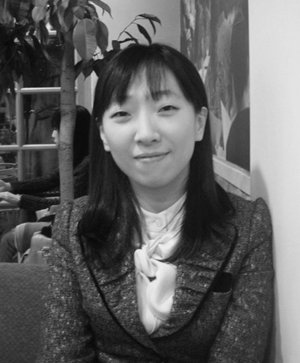
By Lim Rhie-young
The first woman ever to attain a Ph.D. in North Korean studies, Park Jung-ran, became even more committed to her research about the refugees from the North who struggled to adjust to South Korean society, while writing her thesis. During her years of study to receive the degree, she had only a few faculty members to work with because the North Korean studies department at Ewha was still establishing itself and was not fully organized. Thus, unlike graduate students in other departments, Park was not much supported by professors and had to pursue her study and research by herself. During this period, she said she could empathize with the sense of isolation and neglect felt by the North Korean defectors.
The media has publicized Park? works and reported that she was influenced by her father, who specialized in broadcasting North Korean news at the Ministry of National Defense. Nonetheless, the real incident that motivated Park to spend her life helping the less fortunate in North Korea and studying in-depth about their culture was from something more ordinary: a sermon she had heard in middle school at church which talked about the famine in North Korea.
In high school, Park was enchanted by art and music. And during the years she spent educating herself to receive a degree in Public Administration, she was mesmerized by theatre and acting. Nonetheless, at a certain point she realized that acting was not what she wanted to do. Park was looking for something that could contribute to achieving her ultimate vision of alleviating the pains of people from and inside North Korea.
After attaining her degree in Public Administration through the government examination program, Park studied North Korean Studies in the graduate school of Kyunghee University. To further extend her studies, she applied for the Ph.D. program at Ewha, one of the very few universities offering graduate level North Korean studies in the country at the time.
Park faced the challenge of getting objective information about the situation of people in North Korea for her thesis. Of course, there were booklets and magazines from the North and South Korean publishers but many were biased or hid the truth. Thus, the best method of capturing what North Korea was really like today was to interview defectors. The essence of a good interview, says Park, was to communicate frankly, wholeheartedly, and benevolently with the people. By listening to the tearful tales of each individual, Park sympathized with them and found an even deeper meaning in her research and work to inform the South Korean public about the grave reality of North Korea and the lives of North Korean defectors as well.
Especially, Park thinks that the preassumption of South Koreans that filled stomaches and warm shelters are what will satisfy the North Korean defectors must be discarded and ultimately changed. Like any individual of this civilized society, North Korean defectors also have dreams and visions that they wish to achieve and Park believe those, parallel to many cases of self realization, should be respected.
Park's mission, she states, is quite simple, but not easy to practice. It is to communicate only factual and genuine information to people reading or listening to her research and studies. Park believes that the essence of truly helping others lies in truthness both in work and in encountering people. She advises fellow Ewha students to do the same in choosing their future: to speak frankly, wholeheartedly, and benevolently with their heart about their true passion.
rhiealways@ewhain.net

